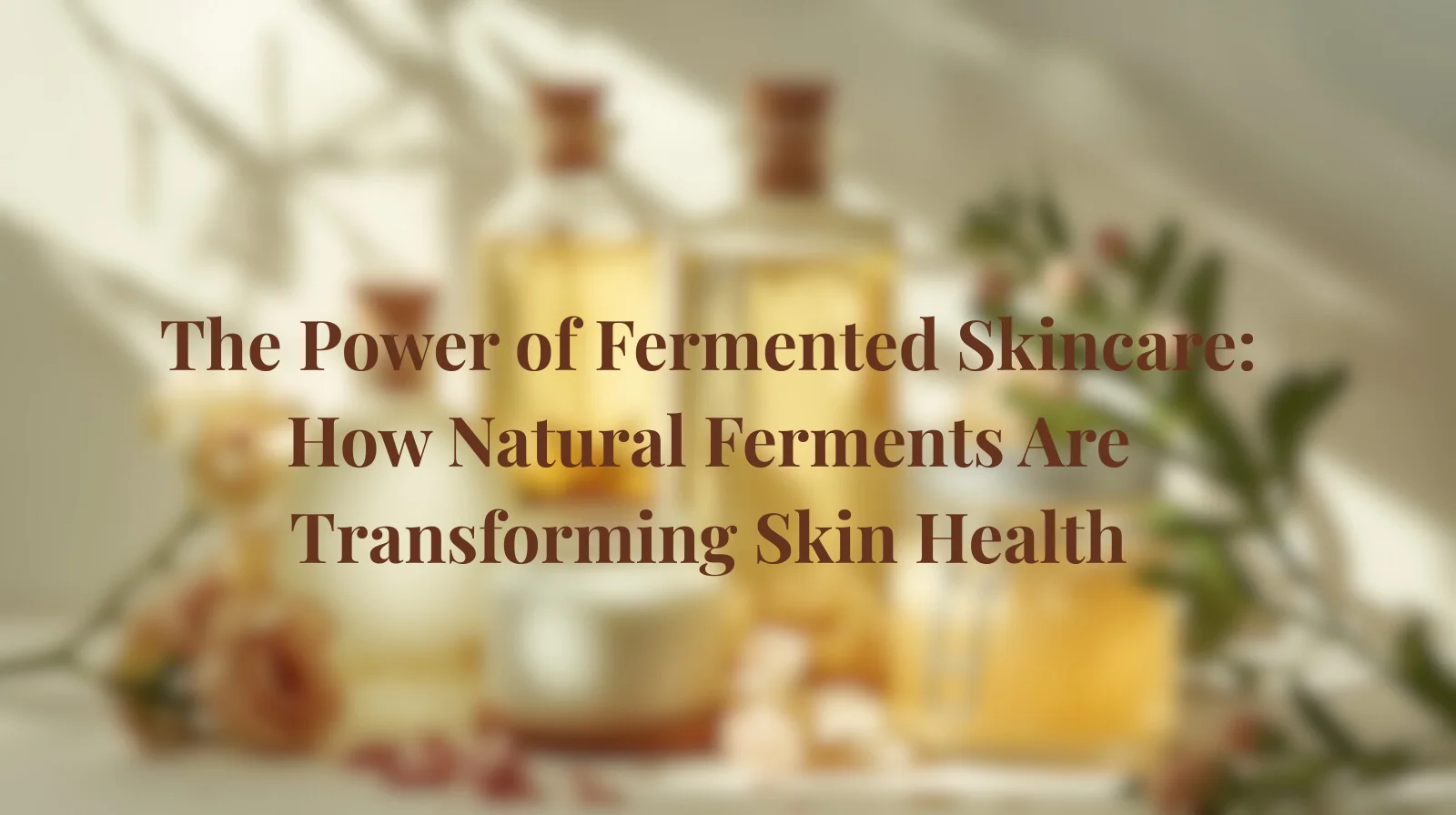Natural skincare isn’t just about oils and extracts anymore. In 2025, one of the biggest trends in beauty is fermented skincare — products made with naturally fermented ingredients like rice water, kombucha, soybean, and green tea.
These ingredients, once popular mainly in K-beauty, are now gaining mainstream popularity across the globe because they promise better absorption, increased nutrients, and healthier skin barriers.

What Is Fermented Skincare?
Fermentation is a natural process where microorganisms like yeast and bacteria break down ingredients. The result? Smaller, more potent compounds that your skin can absorb more easily.
Think of it like fermented foods — just as kimchi or kefir improve gut health, fermented botanicals can improve skin health.
Why It’s Trending in 2025
- Boosted potency – Fermentation enhances antioxidants, amino acids, and vitamins in plants.
- Gentle but effective – Fermented ingredients tend to be less irritating than synthetic actives.
- Skin barrier support – Many ferments are rich in probiotics and postbiotics, which help balance the skin’s microbiome.
- Eco-friendly – Fermentation is a sustainable method for extracting more value from natural raw materials.
Star Fermented Ingredients to Look For
If you’re shopping for fermented skincare in 2025, here are some of the most popular ingredients to look out for:
1. Fermented Rice Water
Used for centuries in Asian beauty rituals, fermented rice water brightens dull skin, reduces dark spots, and provides gentle hydration. It’s especially popular in cleansers and toners.
2. Kombucha (Fermented Black Tea)
Packed with probiotics, kombucha helps balance the skin’s microbiome and protect against environmental stressors like pollution. It’s often found in essences and toners.
3. Fermented Soy Extract
Rich in phytoestrogens and peptides, fermented soy supports collagen production, improving firmness and reducing fine lines. It’s a natural anti-aging powerhouse.
4. Fermented Green Tea
Known for its calming properties, green tea becomes even more antioxidant-rich after fermentation. It soothes irritation, reduces redness, and protects against free radical damage.
5. Fermented Fruits (Papaya, Berries, Pomegranate)
These are enzyme-rich and work as gentle exfoliators. They help remove dead skin cells for a natural glow without the harshness of scrubs.
How to Add Fermented Skincare to Your Routine
- Cleanser: Fermented rice water cleansers brighten without stripping skin.
- Toner/Essence: A kombucha essence hydrates and preps skin for serums.
- Serum: Look for fermented soy or green tea serums for anti-aging benefits.
- Mask: Weekly sheet masks with fermented botanicals give an instant glow.
Who Should Try It?
- Sensitive skin types – because it’s gentler than many synthetic actives.
- Aging skin – for collagen-boosting and antioxidant protection.
- Dull or tired skin – ferments help revive glow and smoothness.
Tips for Using Fermented Skincare
- Patch test first – even natural ingredients can cause reactions.
- Stay consistent – visible results usually appear after 4–6 weeks.
- Pair with sunscreen – antioxidants work best when skin is protected from UV damage.
- Keep it simple – fermented skincare works well in minimalist routines.
Final Thoughts
Fermented skincare combines the wisdom of tradition with the innovation of modern science. By transforming natural ingredients into more powerful, skin-friendly forms, fermentation is making natural skincare more effective than ever before.
In 2025, this trend isn’t just a fad — it’s the next step in clean, sustainable, and results-driven beauty.
Try this rice water challenge for your skin!
Explore More
- 9 Natural Skincare Tips for Healthy, Glowing Skin
- 8 Benefits of Coconut Oil for Skin: Nature’s Ultimate Moisturizer
- 5 Benefits of Plant-Based Skincare: How Nature Can Transform Your Skin Naturally
- DIY Vitamin C Serum: Natural Skincare for Glowing, Healthy Skin
- 7 Amazing Benefits of Face Yoga: A Natural Path to Radiant Skin and Relaxation
Also, if you’re not a part of our amazing family, you’re missing out. Join us today and begin your natural skincare and haircare journey, and receive support from other community members.






